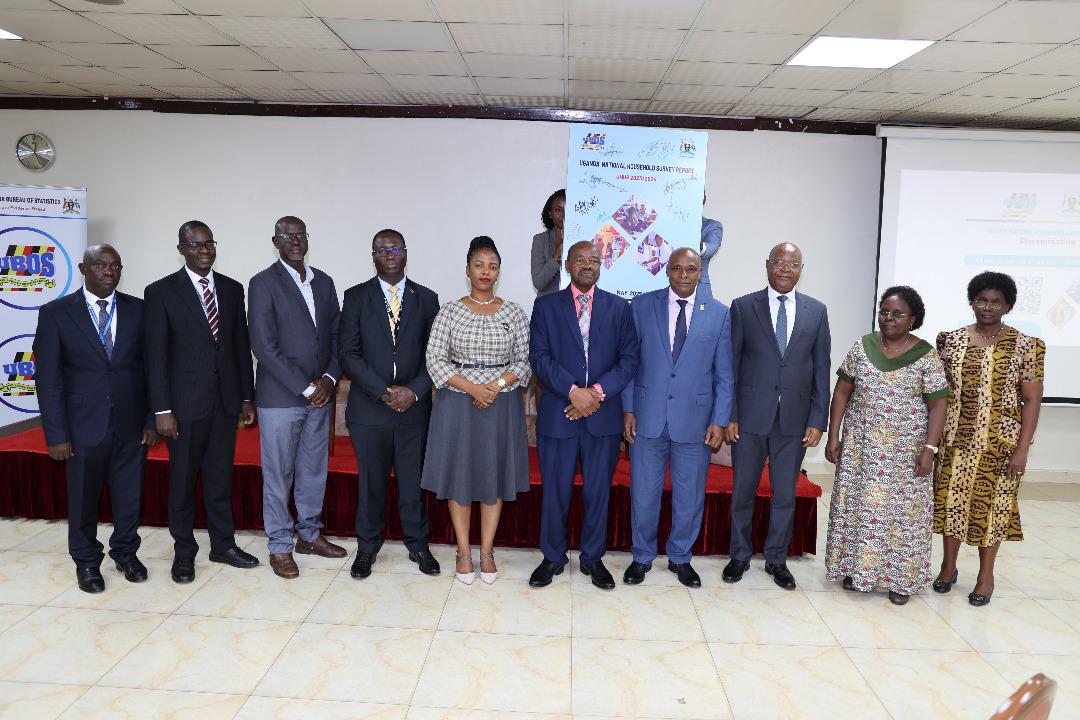
A new Uganda Bureau of Statistics (UBOS) report revealed that Uganda has recorded a significant drop in national poverty levels though economic strain continues to frustrate families especially in rural areas.
The Uganda National Household Survey (UNHS) 2023/24, presented by UBOS at Hotel Africana in Kampala, shows the national poverty rate has dropped to 16.1 percent, from 20.3 percent in the 2019/20 survey. This means about 7 million Ugandans now live below the international poverty line of $1 per day.
Minister of State for Finance, Planning and Economic Development, Amos Lugoloobi, welcomed the progress but warned that many communities remain economically fragile.
“While the numbers show improvement, the reality on the ground tells a different story. In areas like Karamoja, where poverty stands at 74.2 percent, and regions such as Bukedi (29.9%) and Teso (29.8%), families are still in survival mode,” Lugoloobi said.
A key concern raised in the report is the decline in secondary school enrolment, which fell to 33.6 percent nationally, down from 36.8 percent in the previous survey. In rural areas, enrolment is just 26 percent, compared to 46.9 percent in urban centres.
UBOS Executive Director Chris N. Mukiza attributed this drop to ongoing economic pressures that force families to prioritize income over education.
“Many children, especially in rural Uganda, are being withdrawn from school to help supplement family incomes. It’s a coping mechanism that’s becoming increasingly common,” he said.
The report revealed improvements in healthcare access, though financial constraints still prevent many from seeking treatment. Agriculture remains the dominant employer in rural regions, while urban areas are seeing growth in service-related jobs.
Sarah Ssewanyana, Executive Director of the Economic Policy Research Centre at Makerere University, emphasized the need for sustained investment in education, healthcare, and rural job creation to ensure that poverty alleviation gains are not reversed.
“Economic strain is still real for millions. If we don’t address the structural issues, especially in underdeveloped regions, then the national gains may end up benefiting only a few,” Ssewanyana said.
The UNHS findings are expected to guide Uganda’s policy direction and budget allocations, with a renewed focus on inclusive growth and equitable service delivery.